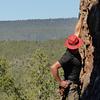Take a photo of a barcode or cover
informative
reflective
slow-paced
"...we bring our spirituality, the full richness and simple wholesomeness of our basic human values, to bear upon the course of science and the direction of technology in human society."
"The earth element sustains, water coheres, fire enhances, and air enables movement."
"The earth element sustains, water coheres, fire enhances, and air enables movement."
The beginning of this book was a high-level, very intellectual exploration of the intersection of science and spirituality (specifically Buddhism). I found the read to be slow-going at first. However, in the last few chapters, the Dalai Lama explores the spectrum of consciousness and the moral and ethical obligations of humanity in the face of explosive scientific growth. It was riveting, and I was nodding in agreement and underlining points on nearly every page. The Dalai Lama's call to action is clear, passionate and (I think) essential. We can all benefit from exploring the issues he raises, and they are issues that we must discuss as a species.
I read this directly after reading Living Buddha, Living Christ. I might be a bad person for saying this, but this is not a good book. I like the Dalai Lama, he's a wonderful man that does wonderful things. This book is not one of them. It feels like the kind of book some one would leave on their coffee table to seem spiritual, or they would bring up in conversation to seem deeper than they might actually be. If you are serious about books on the various religions out there this book will leave feeling empty, and not in the enlightened way.
Ha! I've been reading this book for over two years. I bought it at a time in my life in which I was trying to find spirituality within a lot of science, so I thought it would be useful to me. Plus I was on a lot of steroids and slightly manic so I bought practically every book I saw in the bookstore.
One of the best parts of reading this was realizing how incredibly sharp His Holiness is. Not many people are open-minded AND knowledgeable enough to compare Buddhism and empirical science, but he does so nicely. He points out (rightly) the gaps in the realms of science, namely how it does not know how to deal with emotion and the way we experience the world. Since this is not measurable by "scientific" means, he suggests a spiritual model to augment scientific knowledge. His arguments reminded me that science and research should be about ultimately helping humanity, not just done for the sake of doing. Hopefully some hardcore scientists will read this too.
Why only 3 stars? Basically, I am not a philosopher. This book has a lot of philosophy in it. Therefore, it has been difficult for me to read. I would say that you must be in the mood to think hard before you sit down with this book. If that is the case, you may enjoy it.
One of the best parts of reading this was realizing how incredibly sharp His Holiness is. Not many people are open-minded AND knowledgeable enough to compare Buddhism and empirical science, but he does so nicely. He points out (rightly) the gaps in the realms of science, namely how it does not know how to deal with emotion and the way we experience the world. Since this is not measurable by "scientific" means, he suggests a spiritual model to augment scientific knowledge. His arguments reminded me that science and research should be about ultimately helping humanity, not just done for the sake of doing. Hopefully some hardcore scientists will read this too.
Why only 3 stars? Basically, I am not a philosopher. This book has a lot of philosophy in it. Therefore, it has been difficult for me to read. I would say that you must be in the mood to think hard before you sit down with this book. If that is the case, you may enjoy it.
This guy really gets it! And: aaaaargh, no he doesn't. And: hmmmm, maybe it's me who doesn't get it. Those were my reactions, often simultaneous, and I'm in awe of the Dalai Lama for his ability to think, reason, and express himself so clearly. Would that any other religious authority (or religious person, for that matter) be willing to put his beliefs under scrutiny. He does, sometimes despite discomfort, and that is what makes a scientist. This is an admirable man.
Unfortunately, there's a little too much “we Buddhists got this right”: this or that holy book, or some scholar's revered interpretation thereof. Cherrypicking scripture and trying to get it to fit in with a scientific worldview. Alas, that's what he doesn't get: it just doesn't work that way. More importantly, it's just not even necessary. We don't look to Buddhist teachings for answers to cosmological questions—we seek to learn about ourselves. And there is where the two worldviews can coexist in harmony, and even support each other.
I dream of a world without religion. That is: a world without hatred, without intolerance, without child rape. I will not live to see such a world, but if we have to have religion, maybe we can work to make that be Buddhist or Buddhist-leaning. Self-reflective. Joyful. Curious. Seeking improvement... and not afraid to be questioned. This book is a start; a big step that way.
A note about the audio version: prepare for a love/hate. The reader is terrific, and (other than mispronouncing Feynman's name) does a great job of conveying difficult material at a suitable pace. But quite often the subject is too dense; you want to pause, think, reread, highlight, come back to. And with non-print, you can't. It's frustrating. But even with that, I think you can't really go wrong by listening to it instead of reading.
Unfortunately, there's a little too much “we Buddhists got this right”: this or that holy book, or some scholar's revered interpretation thereof. Cherrypicking scripture and trying to get it to fit in with a scientific worldview. Alas, that's what he doesn't get: it just doesn't work that way. More importantly, it's just not even necessary. We don't look to Buddhist teachings for answers to cosmological questions—we seek to learn about ourselves. And there is where the two worldviews can coexist in harmony, and even support each other.
I dream of a world without religion. That is: a world without hatred, without intolerance, without child rape. I will not live to see such a world, but if we have to have religion, maybe we can work to make that be Buddhist or Buddhist-leaning. Self-reflective. Joyful. Curious. Seeking improvement... and not afraid to be questioned. This book is a start; a big step that way.
A note about the audio version: prepare for a love/hate. The reader is terrific, and (other than mispronouncing Feynman's name) does a great job of conveying difficult material at a suitable pace. But quite often the subject is too dense; you want to pause, think, reread, highlight, come back to. And with non-print, you can't. It's frustrating. But even with that, I think you can't really go wrong by listening to it instead of reading.
i thought it was going to be the relation between science and spirituality but it's only a little bit of it. nothing bad about the book just not what i expected it to be. some good points but made over and over again.
I can't claim to have processed everything I read to the point that I could relay it someone else so that they could also understand it, but it is a worthwhile read if only for how absolutely interesting it is. The Dalai Lama raises a lot of questions on the ethical use of science, often prompting us to think about what certain advances entail for our humanity, and what historical impacts these choices will create. There's also a lot of awesome parallels drawn between the conclusions of ancient Buddhists, and the discoveries of modern science. Often, they reach indentical conclusions.
Anyone who is even remotely interested in science (and spirituality) could find enjoyment in this book, it's not just for Buddhists or those interested in Buddhism.
Anyone who is even remotely interested in science (and spirituality) could find enjoyment in this book, it's not just for Buddhists or those interested in Buddhism.
The Dalai Lama's appreciation for science shines through clearly, and as someone who has a keen interest in both science and Buddhist philosophy, I very much enjoyed this book.
The audio version also includes an interview with Narrator Richard Here about his personal experiences with HHDL and the Free Tibet movement.
The audio version also includes an interview with Narrator Richard Here about his personal experiences with HHDL and the Free Tibet movement.





